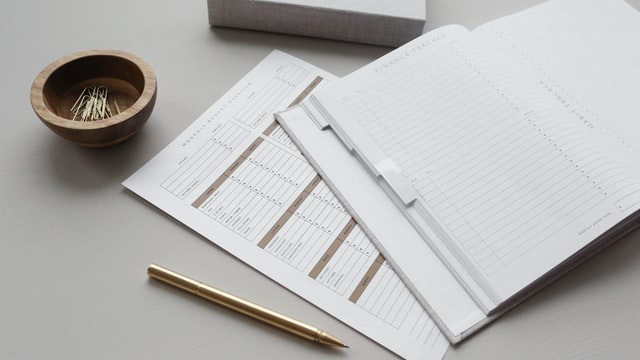Annual accounts can be time-consuming and concerning for people who run a limited company. They are a legal requirement for almost all UK registered companies so it’s vital that you understand what they are, how they need to be prepared and how they’re submitted. Failure to submit accurate accounts in full when required can result in financial penalties and even prosecution.
What do you need to know to ensure that your company meets its statutory requirements?
What you need to know:
- What your accounts must include
- When they are due
- How you prepare and file them
- The deadlines for filing them.
- You should also consider whether you wish to compile your annual accounts or hire a professional accountant to do it for you.
What are Company Annual Accounts?
All UK-registered companies are required to prepare and submit their annual accounts. These report on the details of your company’s financial activity over a twelve-month period and they are the basis for working out how much corporation tax you need to pay to HMRC.
The legal responsibility for submitting the annual accounts lies with the company director. They need to ensure that accounts are accurate and that they are submitted by the statutory deadline.
Annual accounts need to be prepared for both Companies House and HMRC. Shareholders or members (guarantors) must also be given a copy of the annual accounts.
How long does a company have to file its accounts?
Once a limited company has been set up and incorporated, Companies House will automatically be assigned a date for the company’s ‘end of financial year’. This date is the last day in the month that you incorporated your limited company. This gives you a firm guideline on when you need to file your accounts each year.
E.g.
A company is incorporated on 12th August 2022. It will therefore have an Accounting Reference Date and the end of the financial year will be 31st August 2023.
During its first year of operation, the company will be required to file accounts for the dates 12th August 2022 to 31st August 2023. In the following years, annual accounts will be filed for the dates 1st September to 31st August.
For the first year, you will be required to file these accounts within 21 months of your incorporation date. If your company was incorporated on the 12th of August 2022 your company’s annual accounts will be due by the 12th May 2024.
After the first year, you will be required to file your annual accounts within nine months of your Accounting Reference date.
What is included in Annual Accounts?
Full annual financial accounts are also known as statutory accounts or company accounts.
There is a range of documents that are required to be included in your annual financial accounts.
Full annual accounts have to include:
- Balance sheet
- Profit and loss account
- Notes about the accounts
- Director’s report
- Auditor’s report (depending on the size of the company)
- Name and signature of the company director.
Smaller companies
Certain companies can submit shortened accounts to Companies House consisting of a balance sheet and notes.
These are:
- Small businesses, and
- Micro-entities.
To qualify as a small business, your business must meet any two of the following criteria:
- Annual turnover less than £10.2 million
- Balance sheet total less than £5.1 million
- 50 employees or less.
To qualify as a micro-entity, you must meet any two of these criteria:
- Annual turnover of £632,000 or less
- Balance sheet total of £316,000 or less
- 10 employees or less.
Both small companies and micro-entities must still submit statutory accounts to HMRC and to company members.
When are Annual Accounts due?
Your first company annual accounts are due within twenty-one months of the incorporation of your company. Generally, they should cover a twelve-month period, starting on your month of incorporation and ending on your accounting reference date (ARD).
After this first year, your accounts will cover a twelve-month period, and you will need to deliver them to Companies House no later than nine months after your ARD.
Your accounting reference date is assigned when you register your company at Companies House, and this date is your end of the financial year.
If you commission an accountant to prepare your accounts they will ensure that you meet all of the statutory deadlines. This is important as failure to meet the relevant deadlines can result in financial penalties being applied.
Shorten or extend your financial year
Your ARD will remain the same every year unless you choose to shorten or extend your financial year. Your financial year can be shortened as often as required by as many months as necessary. You can only extend your financial year once every five years, and up to 18 months from the incorporation date, or the date of the previous year’s ARD.
Changes to your ARD cannot be made if your accounts are overdue or if your company is in administration.
How do you do End of Year Accounts?
As we have outlined, your accounts must include various elements to give an accurate picture of your company’s financial activities over the last financial year. The elements required are normally dependent on the size of the company and usually include:
Balance Sheet
This is a financial statement which provides information about your business’s assets and liabilities.
It indicates the financial health of your company at any given time and illustrates how much money the company has spent in the financial period.
Assets are what your company owns, and can either be fixed, such as equipment or vehicles; or current, such as cash in the bank and cash you physically have in the business.
Liabilities are your obligations, usually in the form of debts, which you will need to repay.
These can be short-term, which means you need to repay them within a year; or long-term, not requiring payment until the next year.
The balance sheet provides a quick snapshot of how the company has performed over the previous year.
Profit and Loss Account
Where the balance sheet provides a snapshot of the company’s financial position, the Profit and Loss account records the financial performance over a longer period of time. It records your total revenue and expenditure for the entire financial year.
The turnover of your company is the entire value of your sales. The cost of these sales to the company, such as the wholesale costs of the products and shipping, are subtracted from the turnover to give you your gross profit.
You can then subtract other administrative costs and expenses required to operate your business from your gross profit. These will include staff salaries, pension payments, loans, utilities, rent or mortgage payments. If you qualify as a small company you are not required to file profit and loss with Companies House.
Take your turnover figure, which is the value of your sales. Subtract the cost of these sales from it and you have your gross profit.
You can then subtract administrative expenses from your gross profit. These include things such as salaries for staff, pension payments, loans, utilities, building rent or mortgages.
Supporting Notes
This refers to any supplementary information you provide to support the accounts. These can help to clarify your company’s current financial position, specific balance sheet or profit and loss entries, or support any estimates you include about future performance.
The notes required are determined by the accounting standards being used to create the annual accounts. Considerably fewer notes are required for FRS105 accounts.
How do you prepare a Directors Report?
For companies filing FRS102 accounts, you will need to submit a director’s report to Companies House.
For FRS105 based reporting there is an exemption, although it is often good practice to still prepare one.
The directors’ report must contain:
- The names of the persons who, at any time during the financial year, were directors of the company
- Where the weekly average number of UK-based employees exceeds 250, a statement is required describing the company’s policy on the hiring, continuing employment and training, career development and promotion of disabled persons.
There are additional requirements for audited mid-sized companies.
Companies may also decide to include a strategic report. A strategic report summarises and puts into context the company’s performance and current financial position.
Your report may include:
- Analysis of your company’s performance
- Summary of its current financial position
- The company’s principal business activities, objectives and strategy
- Current state and future viability of the market you are operating in
- Likely future prospects and developments
- Your company’s capacity for growth
- Trends or factors that might have an impact on the company’s performance
- Main risks and uncertainties the company faces
- Significant changes to company assets
- Important financial events occurring after the date of the balance sheet, that is affecting the company
- How you have assessed prospects, risks and uncertainties
- How you are managing challenges and opportunities
- Recommendations for payment of dividends.
Will your accounts be audited?
If you are a small or medium-sized company you will not require an audit, unless your company’s articles of association state that an audit is necessary.
Where an audit does apply, it needs independent accountants to carry it out, and then provide an auditor’s report as part of your annual accounts.
Do you need an accountant to file Annual Accounts?
If you are confident that you understand what’s required then it’s possible to compile and file your own annual accounts without the need for an accountant. However, due to the complex requirements of annual accounts, the length of time they can take to complete and the possible penalties for late submission or errors, a professional accountant will usually be used.
Who can file Annual Accounts?
Anyone in a limited company can file its annual accounts, but they must make sure the company directors approve these accounts before filing them at Companies House.
If you commission an accountant to compile your annual accounts they can submit them on your behalf.
The director should be named in the accounts and should sign them before they are filed with Companies House.
How to submit accounts to Companies House
You should file your company accounts with Companies House, and your company tax return with HMRC.
However, if you are a private limited company that is exempt from auditing, then you can file your accounts and tax return together. You can do this with HMRC online, or by using appropriate accounting software.
Otherwise, to file your accounts separately with Companies House, you can send them online.
And you can click here to File your accounts and Company Tax Return.
To file your annual accounts online, you will need a Government Gateway user ID and have corporation tax linked to your HMRC account.
Can I submit my own Limited Company Accounts?
As a limited company, you are very likely to have more complicated accounting arrangements than a sole trader.
The Financial Reporting Council (FRC) has strict accounting regulations to which your company’s annual accounts are required to adhere to. Failure to get this right can result in penalties.
If you are a company director, you have a legal responsibility for maintaining annual accounts records that are entirely accurate, and you must file them within relevant deadlines to Companies House and HMRC.
Incorrect filing could be damaging to your business, so you should not submit your own accounts unless you have solid and up-to-date accounting knowledge. For this reason, it’s generally advisable to use the services of a professional accountant.
An accountant will also be able to apply a significant depth of knowledge and insight to your accounts, helping you minimise your bills while helping you with strategies to grow your business. They will ensure you meet all of your statutory requirements and that penalties are avoided.
How much should Annual Accounts Cost?
If you use an accountant to compile your annual accounts, then charges will vary depending on the accountancy firm and the level of service that you choose.
Annual accounts are a vital part of your business and can inform your business decision-making, so you should consider using an experienced accountancy firm. They should have a proven track record and be an accountant whom you can trust.
The fees that are paid to an accountant can be offset against the cost of your own time should you choose to compile your own accounts, the value they add to your business going forward and the removal of the risk of financial penalties.
Why uses our Annual Accounts Services?
Venn Accounts specialises in dedicated accountancy services, such as our annual accounts and corporate tax packages for UK-based SMEs, startups and tech companies. As Xero partners, we use leading, cloud-based accounting software as an advanced tool to support the businesses we work with.
Here at Venn Accounts we will ensure you meet all of your statutory requirements and have a comprehensive and accurate set of financial accounts on which to base your decision-making and grow your business.
For more information about our services, please call our team of senior chartered accountants on 020 8088 2590, email enquiries@vennaccounts.co.uk, or complete our contact form, and we will be back in touch as soon as possible. We are here to help and are happy to answer any questions you might have.





